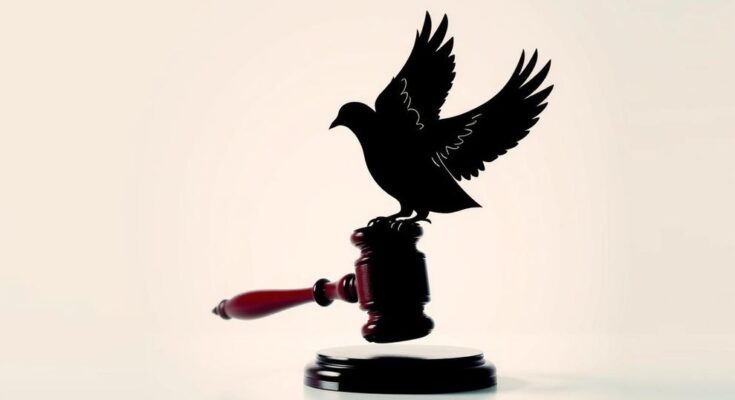In a striking ruling on March 3, 2025, a Casablanca Court sentenced Fouad Abdelmoumni, a notable activist, to six months imprisonment and imposed a fine of 2,000 dirhams (about $208) over a Facebook post made during French President Emmanuel Macron’s visit. Human Rights Watch and DAWN urge Moroccan authorities to halt their crackdown on activists, emphasising the need to uphold free speech and overturn Abdelmoumni’s conviction.
Abdelmoumni, who was overseas at the time of sentencing, faced charges including “insulting public authorities” and “spreading false information,” stemming from an October 28 post that critiqued Moroccan-French relations and accused the government of deploying spyware against dissenters. He was briefly arrested on October 30, 2024, but released the following day.
Critics of this conviction highlight the troubling trend of silencing voices through legal means in Morocco. Balkees Jarrah from Human Rights Watch condemned the sentencing, stating, “Dragging yet another Moroccan activist into court merely for expressing an opinion shows just how outrageous this crackdown on free speech is.” Jarrah calls upon President Macron to influence the Moroccan King to cease these repressive acts.
Abdelmoumni has long faced targeting from authorities, including digital surveillance and media harassment. In the past, he was a political prisoner dated back to 1977 and 1982, revealing a history of torture. He discovered in 2019 that Pegasus spyware, produced by the Israeli NSO Group, had infected his phone, allowing invasive monitoring of his personal life and communications.
In response to government inaction regarding his spyware complaints, Abdelmoumni attempted to seek justice through the Moroccan National Commission for the Control of Personal Data Protection, which claimed it had no jurisdiction over the issue. The persistent harassment included the distribution of private videos, leading both to distress and measures to secure his personal life and that of his partner.
Moroccan authorities have ramped up their oppressive measures against journalists and activists, meting out punishments for various forms of perceived dissent. Recent cases, such as the arrest of family members of the Moroccan YouTuber Hicham Jerando, demonstrate the extreme lengths to which the state will go in silencing criticism.
Other activists such as Ismail Lghazaoui and Hamid Elmahdaoui have likewise faced incarceration under dubious charges related to their expressive actions, painting a grim picture of the current situation for free speech in Morocco. Calls for reform are echoing, demanding a repeal of punitive provisions against nonviolent speech.
Fouad Abdelmoumni, a Moroccan activist, was sentenced to six months in prison for a Facebook post during Emmanuel Macron’s visit. This ruling exemplifies Morocco’s crackdown on free speech, with calls from Human Rights Watch urging the reversal of his conviction and an end to the repression of activists. Abdelmoumni has faced harassment and digital surveillance, reflecting a broader trend of silencing dissent in Morocco.
In conclusion, the sentencing of Fouad Abdelmoumni highlights the grave threats to free expression in Morocco. Authorities continue to silence dissent through legal intimidation, showcasing an urgent need for reform. Without significant changes in legislation to protect free speech and the rights of activists, the chilling effect on dissenting voices will persist, undermining Morocco’s commitments to human rights.
Original Source: www.hrw.org



